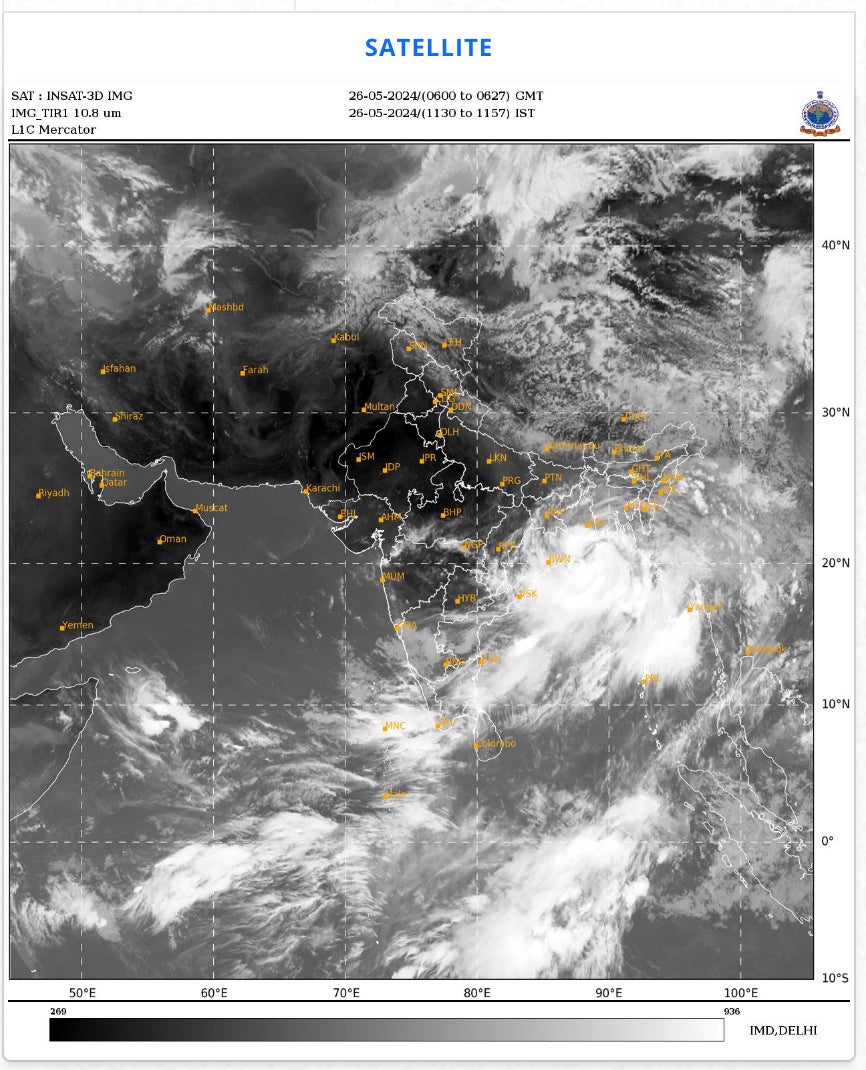India prepares for a severe cyclonic storm in the Bay of Bengal in coastal areas near Bangladesh
India’s Kolkata airport will suspend flight operations from midnight Sunday for 21 hours after a storm over the north Bay of Bengal intensified into a severe cyclonic storm

India’s Kolkata airport will suspend flight operations from midnight Sunday for 21 hours after a storm over the Bay of Bengal intensified into a severe cyclonic storm, airport authorities said.
The cyclonic storm is expected to cross Bangladesh and India’s West Bengal coasts around midnight Sunday, the India Meteorological Department said in a statement.
It is expected to reach maximum wind speeds of up to 120 kilometers per hour (75 mph), with gusts up to 135 kph (85 mph) hitting West Bengal’s Sagar Island and Bangladesh’s Khepupara region on Sunday night, the Indian agency said.
This is the first cyclone in the Bay of Bengal ahead of this years's monsoon season, which starts in June and ends in September.
Moderate to heavy rainfall is expected in most places over coastal districts in West Bengal state. A storm surge about 1 meter (3.1 feet) high is expected to flood low-lying areas of coastal West Bengal and Bangladesh.
Such storms can uproot trees and cause major damage to thatched homes and power and communication lines, the statement said.
India’s coasts are often hit by cyclones, but changing climate patterns have caused them to become more intense, making preparations for natural disasters more urgent.
Bookmark popover
Removed from bookmarks